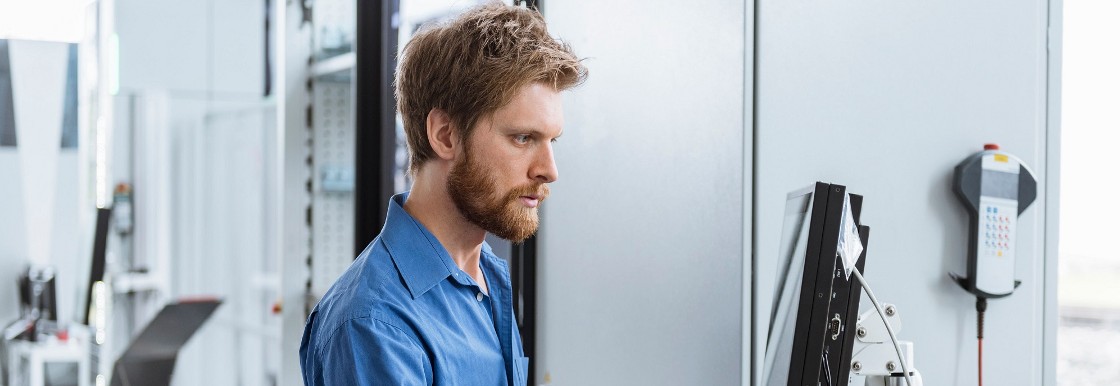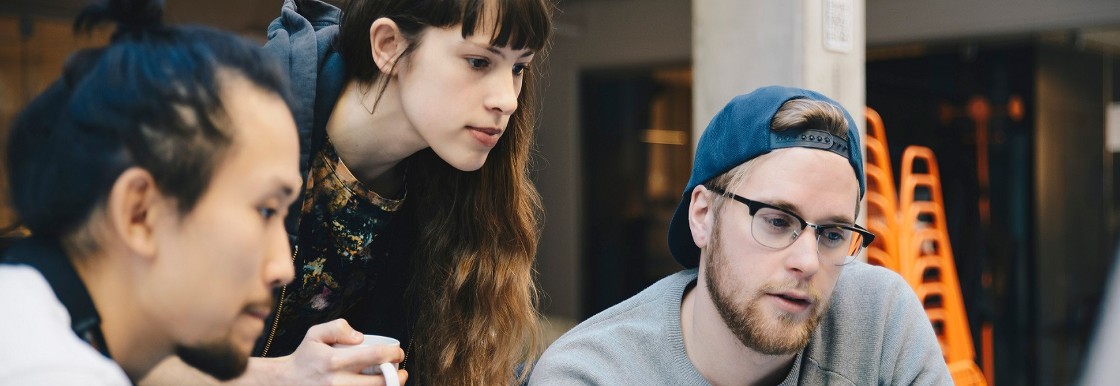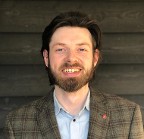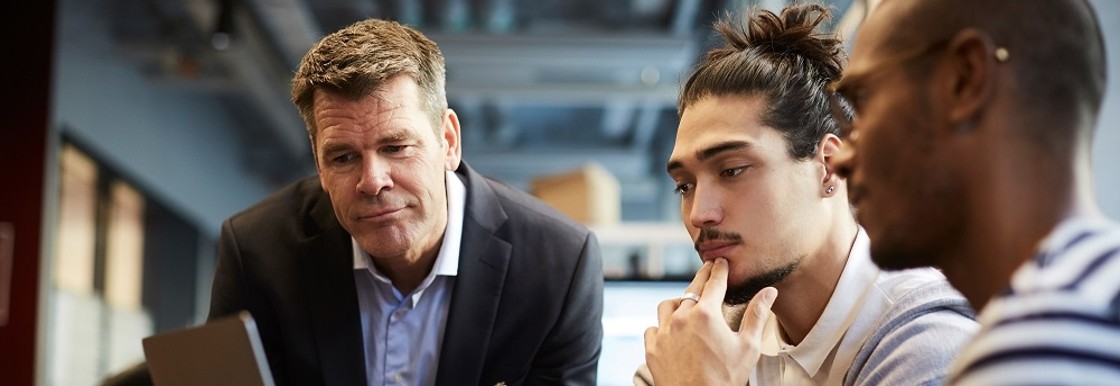Can you imagine working together with a colleague who lives thousands of kilometers away? For professionals Kishore Reddy and Steeven Delbecq at KPN this is daily reality. They successfully made use of Yacht’s GROW: the services that provide companies with qualified international IT talents who work remote. “GROW provided me with good quality candidates”, says Steeven, Product Owner Digital Performance Team at KPN. “One of them was Kishore, a software engineer from India.”
How did you get in contact with GROW?
Kishore: I was looking out for a new job because at my current job I had work life balance issues. This company has an intense work culture. I didn’t get time to spend time with my family. Which is important to me, because I have a daughter who is almost 2 years old.
A recruiter of Randstad India (Yacht is part of The Randstad Group - Ed.) saw a resemblance between my experience and skill set, and the job description of the role that was available at KPN. She asked if I would be interested and gave me a brief introduction about what the company and the role is about. When I expressed my interest, I had the chance to connect with Yacht and learn more about the company, the style and the role that they are hiring for.
Steeven: From my side I was looking for a technical analyst which is a very particular role. We had quite a difficult time finding someone for this position. Our hiring department therefore got in contact with Yacht, who introduced us to GROW. They provided me with a bunch of curriculums, and one of them was Kishore’s. And yeah, the rest is history.
How is working together like this so far?
Steeven: So far it has been great! When Kishore arrived, I first of all wanted to make sure he felt integrated in the team, because I think wellbeing is quite important and it helps to actually deliver. Especially because he lives abroad and hasn’t met the team like most of them did before corona. I wanted him to feel integrated. I introduced him during one of our daily meetings and asked him to plan one on one meetings with each team member.
Kishore: What Steeven spoke about during the interview - a good work life balance, the wellbeing and the non existing language barrier - is exactly what I am feeling right now. I’m getting time for my work, but also for the family. And the collaboration with the team is very seamless. Even though we are working remotely. We have regular connections and have a tight bonding in terms of what we are doing.
Steeven: I know the others in my team are very warm and welcoming, so I knew it would be an easy introduction. We have regular connections, like our daily meeting every morning. During this time we don’t talk about work, we check how everyone is doing. Just chitchat basically to create bondings.
Kishore: I think a streamlined team is a must for any remote work culture. In Steeven’s team, we have it already. For instance, here we know who is requesting for developmental work, what the time estimate is and what the priorities are. Steeven also introduced mutual knowledge sharing sessions in our team. They ensure we have an equal degree of knowledge and hands-on experience in every subject. It helps to bond between the team members in terms of sharing knowledge. And as an individual I also get the opportunity to learn a lot and improve my skill set.
Lastly, I think documentation is very important. It tells you step-by-step procedure of what has been done, which is a critical element for our development work. It also makes onboarding faster. Within two weeks I was up to date with everything that Steeven’s team does at KPN. I only had to cross check 10% percent of the information with my new team members.
How did you know GROW was the solution you were looking for?
Steeven: When Yacht explained the approach of GROW to me, I was a bit hasistend at first. GROW tries to find people abroad, usually quite far away like in Brazil or Asia. At first I insisted on finding someone in Europe because of the time difference. But they presented me with some good profiles from India and Chile. They were exactly the profiles we wanted. After that we had more conversations about how I would feel working with someone who is far away in terms of time zones.
Kishore: I wanted my next opportunity to be a permanent one, at least for the next five to ten years. During my interview with Steeven I expressed an issue with my work life balance at the employer I was working for. Steeven knows the value of individual work life balance and wellbeing and gave me examples on how he brings balance in his team.
We also spoke about the language barrier during the interview. He explained he already has a person in the team who doesn’t know the Dutch language, but is still the best in terms of work. So there is no work life issue, wellbeing issue, mental wellness issue or language barrier. Steeven has given me a lot of confidence and comfort across all the aspects.
Steeven: Working remotely is actually really common for a Tech department. From a work perspective, it is more efficient to work from home. My whole team is still working remotely and haven’t been to the office in two years. Right now there are three Indians in my Team, two Dutch, one French and one from the UK in my team. We are very multicultural, and it’s always been like that in the Tech department.
Can you give an example of how you keep a good work life balance when working abroad?
Steeven: Sure, take the time zone difference for instance. At the beginning Kishore worked in our time zone. But very quickly, I think after two weeks, I already told him that is not acceptable for me. I have two daughters myself and I don’t want him to work till 9 pm everyday. That’s awful.
Kishore: We changed my schedule from 6 am till 3 pm Dutch time. That’s 10 am till 7:30 pm for me. Initially Steeven gave it as an experiment to see how I was dealing with my work and the collaboration in our team. And to see if I was comfortable or not. I followed it and guess what, it is still the schedule I have been following for now. I have the evenings for my family now.
Steeven: We can be pretty flexible, because we plan most of our important meetings in the morning. I try not to plan any meetings after 3 pm. The rest of the team doesn’t want meetings in the afternoon anyways. They are developers, they need to develop.
Kishore: Yes, meetings should be streamlined for developers. Development work needs a lot of solo time. We internally connect one on one if we have any query, but developing needs a lot of creativity and focus. With streamlined meetings, we have more time in production.
Would you recommend working like this to other companies?
Steeven: Yes, definitely! For us it’s working so far. But it depends on the company. It’s really about using the agile or scrum method. We can, for example, organize our meetings how we want. We are basically in control of how we want to reorganize our team. For other teams it’s not like that. They might have meetings with the management to present stuff. We don’t have much pressure from the management.
Kishore: Absolutely! I’m very excited to be part of KPN for several more years to come. If you have a streamlined way of working and have the freedom to experiment and make adjustments in your way of working - like we did with our meetings in the mornings- working like this definitely works and yields good results.
Steeven: I sometimes wish I was a developer, my agenda is not that empty in the afternoon.










